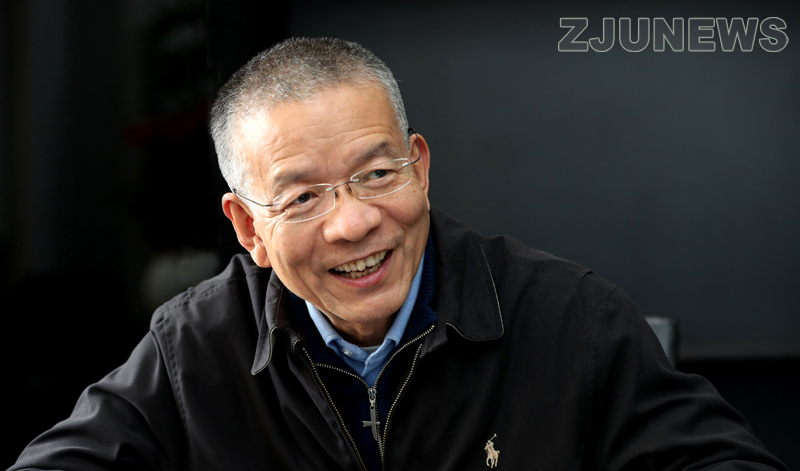On April 9, Prof. WU Hanming, a distinguished microelectronics expert and a fellow of the Chinese Academy of Engineering, was appointed as Dean of the College of Microelectronics and Nanoelectronics at Zhejiang University. He made a comeback to academia this time in an effort to cultivate a galaxy of young researchers who can develop a whole set of mass production technology, thereby meeting the needs of national strategies.
WU received his doctoral degree in engineering at the Chinese Academy of Sciences (CAS) as early as 1987 and became one of the youngest researchers at the CAS in 1997. Later, he did his research as a post-doc at UC-Berkeley. After that, he became a senior engineer in Novellus Systems Inc. and Intel Corporation in California.
Since he returned to China in 2001, WU worked in Semiconductor Manufacturing International Corporation for 18 years. This experience enabled him to gain an insightful understanding of the future development of this industry.
While focusing on the industrialization of technology, WU also responded actively to the deficiency of core technology in China’s chip industry and the difficulty in meeting market demands. He pioneered the domestic design and manufacturing of high-end integrated circuit products.
“Industry triggers demand and science and technology professionals should engage in research and development in line with industrial needs,” said WU.
In 2019, 67-year-old WU Hanming was elected as a CAE fellow. “My strength is a wealth of experience I have accumulated while participating in the evolution of different technologies,” said WU.
It is for this reason that WU is currently more concerned about another major bottleneck in China’s chip manufacturing—the shortage of human resources.
“There is no individual hero in his major projects. It is thanks to the unselfish devotion and determined endeavor of thousands of science and technology professionals that a series of remarkable achievements have been made,” said WU, “A first-class product is crafted due to every first-class step, calling for every bit of wisdom from elite talents.”
Universities are the cradle of talent cultivation, but talent cultivation in the domain of integrated circuits differs from the conventional educational mode. “We have very few research articles in our field. The output is one of the yardsticks of our work,” remarked WU, “Industrial technology is distinguished from common science and technology, and if no benefit is produced, it cannot count as a success.”
“Zhejiang University is characterized by the integration of industry and education, innovation and entrepreneurship. It is a fertile ground for the cultivation of integrated circuits talents,” said Wu, “Innovation is the golden key to problems. In an industry-oriented discipline, it will be extremely tough if it follows the rules and fails to break patterns. Only with an innovative management model can breakthroughs be made.”

